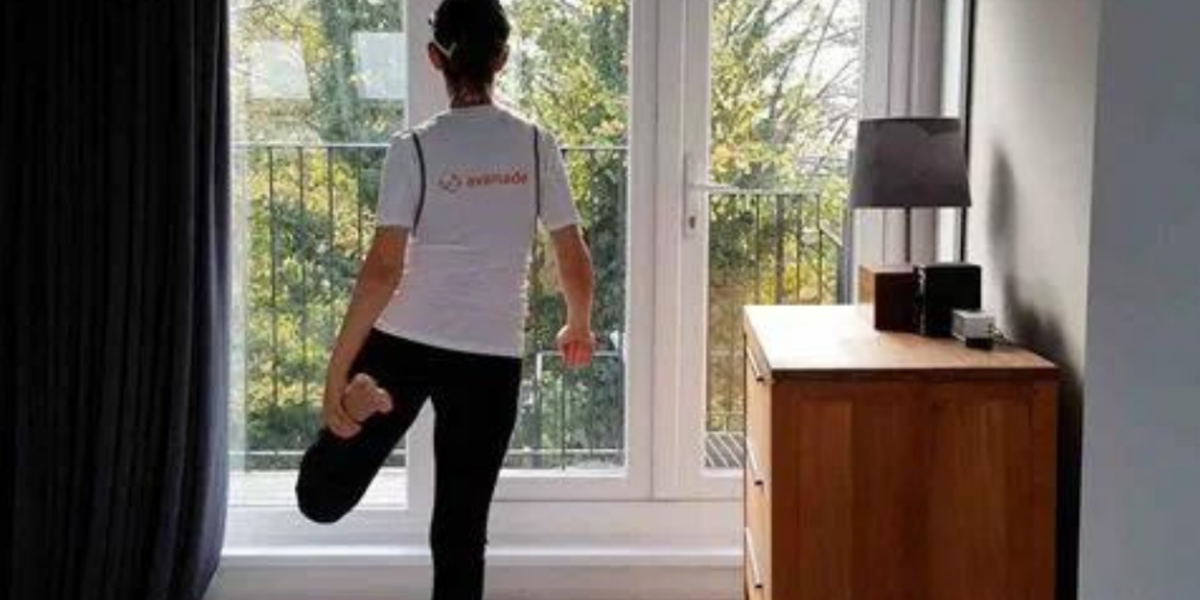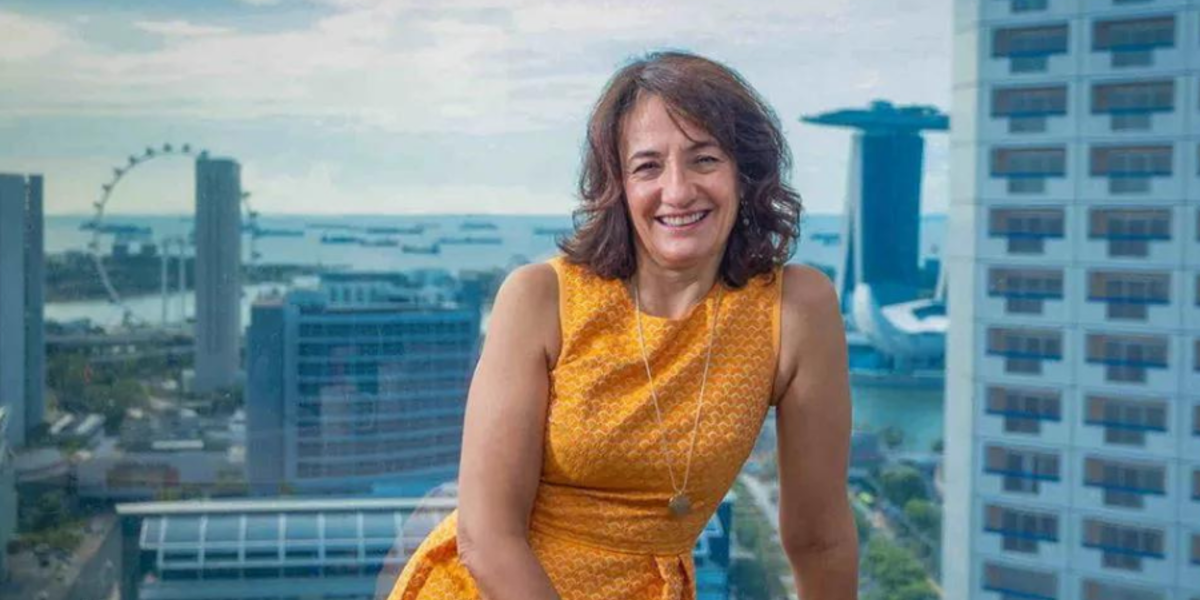-

The Importance of Inclusion & Diversity in Cybersecurity
When I interviewed here at Avanade, it was the first time (in my more than 20 years), that part of that interview process included an Inclusion & Diversity (I&D) session.I met with someone with the express purpose of discussing I&D. I was asked what ideas I had on getting more I&D into cybersecurity and more broadly STEM (Science, Technology, Engineering and Mathematics) in general. My response, as someone who grew up a white, middle-class male was, “I’m not really sure.”Despite growing up in what I would call one of the most diverse cities in the U.S. (Houston, Texas), having been exposed to all ends of the spectrum when it came to race, income, demographics, geography and more, I had not considered a world where someone didn’t consider a STEM career because of their status, race, sexuality, etc. I attended college with Hispanic women studying medicine and computer science, and Muslim women studying biology, etc. There were multiple historically Black colleges and universities (HBCUs) with good programs. So, my world view and experience was not “worldly,” I suppose.I have considered this question and specifically how do we (as businesses) get more inclusive and diverse around cybersecurity. And I mean across the board; while gender and race are often top-of-mind, there are other status such as veterans, differently-abled, age groups, religion, nationality, etc.A double win: I&D and skills shortagesMy first recommendation is a double win: Along with diversity gaps in security, we also have a gap in available staff and skills in the market.In my view, we need to hire more entry level or transition people from other industries. Entry level roles require a basic understanding of security and then as a business we can train them to fill the roles we need in the future. The issue today is most “entry level” jobs are looking for 5 or 7+ years of experience in certain skills, when what they should be looking for is passion and ability to learn these skills. When we open the barriers on the roles we need, it makes it easier to bring on individuals from any background.Now I’m not suggesting a Director of Incident Response role should be filled by a recent college grad, but businesses need to have more roles for entry level positions. We need to grow our own because if we don’t, no one else will.“Breaking into cybersecurity” is a real discussion topic among entry-level candidates. We are telling constantly telling younger people that this market is booming and it’s where you want to be, but not hiring enough of them. It should be easy to see how this kind of shift in our industry will make the entry point for I&D easier.Remote work and flexibility make a difference.I spent more than half my career in consulting. It’s nonsensical to me that any business would not embrace remote work. Throughout my career, as I interviewed for a role, if it was one where I had to “punch a clock at 8 a.m. and 5 p.m.” and be in the office just to be there, I passed on the opportunity. In my view this is an inefficient way to work and it limits your talent pool. By allowing your employees to work remotely, you extend access to regions and areas where you can accelerate I&D hiring.You can establish relationships with schools, non-profits, or other organizations to promote cybersecurity or STEM in areas that may not be doing so. It’s time we stop looking at our businesses with respect to a particular city or headquarters location and start working nationally and globally. You can influence youth this way and you can get the best talent to fill those hard-to-find roles.Transition programsThese are another great opportunity to expand the diversity of your workforce. Whether it’s a specific program like the U.S. Department of Defense’s skillsbridge, or organizational specific program, finding passionate individuals who want to work in the industry and working with them opens many doors. These programs take people who have worked in other industries and “reskills” them. You not only get to add diverse hires to your staff while growing the industry, but you also get people who are skilled in other areas. They may have great soft skills for client-facing work, be excellent managers or can use their experience in the medical field to now help secure healthcare organizations. If one of our issues as a society is our youth are not being exposed to STEM or not having the opportunity to do it, we can then investigate the industries where they are going into and build these kind of transition programs.I believe as an industry, we can do things to increase the diversity of our workforce. We simply need to make diversity a priority and explore the benefits it brings to the success of our businesses and our industry. If you want to read more about how Avanade empower employees to be themselves and build their career visit our Life at Avanade page. William Klusovsky is the Global Industry Cybersecurity Lead at Avanade.The original article was published here.
-

Making a genuine human impact through mentally healthy workplaces
As the global pandemic rages on and many Australians experience extended lockdowns, we’re seeing a heightened awareness around the state of our mental health and well-being.The sad truth is we’re not alone when it comes to feeling overwhelmed, tired, insecure, worried, lonely and isolated as a result of everything we’ve experienced in the last 18 months or so. In fact, according to a study conducted by the Australian Bureau of Statistics – one in five Australians are reporting high or very high levels of psychological distress linked to the pandemic, with young people, women and those living with a disability the most affected by poor mental health.As we celebrated World Mental Health Day earlier this month on Oct. 10, there was, thankfully, some cause for optimism. According to the World Health Organization, governments around the world have recognized the importance and need to scale quality mental health services. Similarly, a recent report by the Black Dog Institute found that organizations in Australia are taking concrete steps to create more mentally healthy workplaces. The same report, however, also indicated that some of these policies don’t necessarily cater to the changing needs of Australian workers as well as to how work and the workplace have dramatically evolved in the last two decades.That said, there is a silver lining in every cloud. The last 18 months have taught us to embrace changes, learn and adapt – and in this instance, create new mental health policies that are flexible and practical for all employees.For example, at Avanade, we introduced the Alternative Work Week program to empower employees to space out their time in a way that works best for them. Employees who choose to participate in the program may opt to work their designated hours over four or four-and-half days in a condensed and focused fashion, providing them time to balance their work and life commitments. Other initiatives and benefits we’ve introduced to support our employees’ mental health and well-being include personal days off to disconnect and recharge, No Meeting Fridays, and professional counselling services. Additionally, to recognize Mental Health Month in Australia, we provided our employees an additional paid day off in October to focus on their mental health and well-being.As part of our commitment to better support our people, we’ve also become a member of the Corporate Mental Health Alliance Australia (CMHAA) to raise awareness about the importance of mentally healthy workplaces, as well as provide more tools and resources to support our employees.This October is Mental Health Month. As individuals, let’s take this time to show that we care for one another. For organizations in the public and private sectors – this is an opportunity for us to really examine the issues around mental health, take action, and make resources more accessible so together we can make a genuine human impact on the quality of life and well-being of Australians.The original article was published here.
-

#ChooseToChallenge: How speaking up and challenging the traditional path has propelled my career forward
My colleagues and peers know I have never been silent; I have never been shy or soft-spoken. I am a challenger, someone who advocates and stands up for others; I am very concerned with justice, combating oppression, and protecting the underrepresented. The events of the last year have driven me to channel my voice and passions into larger and louder impact. A single volunteer event, protest, or fundraiser is no longer enough. I began looking toward how to impact social change within my organization. This was the time I began to feel like I needed to pursue a career that was more aligned with these goals.One year later, I have just begun my new role within Inclusion & Diversity (I&D) at Avanade. Aside from the commitment to making a drastic career shift, there were several key development programs, opportunities to gain visibility and sponsors who helped me get here. First, I took an active role in corporate citizenship in my region. Almost one and a half years ago, the global corporate citizenship team rolled out a local leads program to help them execute their goals and drive employee engagement at a local level. As someone who jumps at any volunteer and community leadership role, I knew that I wanted to be involved from the start. Through this plus-one role, I began to develop my network at Avanade outside of my role and Talent Community and demonstrate program management skills. Since I began this role, I have drastically grown the program in the Midwest, increased employee engagement and participation, and led pro bono projects that helped take nonprofits digital in the COVID environment. I continue to push us to get creative, give more, and do more in the corporate citizenship space.After success in this role, I was selected by Avanade to attend an accelerator program at the University of Washington, focused on accelerating social change and impact in the Evans School of Public Policy. The strategies and leadership skills I gained gave me the confidence as a change maker to start implementing more or my ideas at work.The second and most crucial component in my career advancement was founding and leading an Employee Network. After a few months of chronic racism and bigotry in every headline last summer, I knew that I needed more support at Avanade, even if that meant leading the charge. I began planning the launch of Adelante – Avanade’s Latinx Employee Network – and assembling a small founding team to help get it off the ground. At the time, we had a three-person I&D team, and there weren’t enough resources to give Adelante a ton of support. I did not let organizational boundaries impede our progress and began a journey of proving the worth behind intentional and carefully curated programming aimed at making Avanade’s Latinx community and supporters feel included and valued.After our first event, it was clear that we were going to make an incredible and positive impact both now and for years to come. Not only was Adelante creating change surrounding its three pillars – people, community service, and market – but I began to get pulled into larger conversations about race and equity at Avanade. Over the course of a single quarter, I had the opportunity, in a one-on-one setting, to share the Latinx experience and feedback with executives from across the organization, including CEO Pam Maynard herself. I also participated and took a very vocal role in our Global Race Taskforce this winter, where I was focused on accelerating development for employees of color and creating a truly inclusive culture. As a young woman still forging her career, that level exposure and visibility has been priceless.Being able to lead and create impact at this scale is rare, and it’s what will keep me at Avanade for years to come. I always have my voice, and it gets listened to here; it gets amplified and it is valued. I have experience at top consulting, financial services, and tech institutions, and I have never experienced the level of freedom and control of my career like I have at Avanade.This International Women’s Month I feel proud of my progress and grateful for the opportunity to challenge myself, my peers, and Avanade to make a bigger, bolder and louder impact.Mina Rabideaux is the Global ERG Program Manager at Avanade.The original article was published here.
-

Avanade Leadership Program for Women goes virtual in 2021 to great effect
Launched in 2016, the Avanade Leadership Program for Women (ALPW) is not new to our organization, but it is seeing some significant changes this year. This is the first year the program has been run virtually, so it was redesigned to take place over six months, from May to November.With 58 women from across Avanade participating, it’s the program’s largest cohort ever. The women will join a three-hour session once per week for six weeks before moving to one-on-one coaching along with webinars or coaching circles every few weeks until November.Also new this year is the freshly launched ALPW Alumni Program, which allows former participants to keep touchpoints, learn from experts and leaders, and grow their network. Anyone who has attended ALPW in the last six years is welcome to join.To gain more insight into these new experiences, we chatted with 2021 ALPW participant Jen Glover, digital product manager, ALPW alumna Patricia Valloni, Growth Markets corporate citizenship lead.2021 ALPW Participant Jen GloverHow did you feel when you first heard you've been selected for this year's cohort?I’d heard the mythology of ALPW since probably in my first six months at Avanade, and I've been wanting to get in that program ever since joining. So, it's been about two years in the making, kind of lobbying for myself, and eventually, yeah, I got it and I was really ecstatic and felt really seen and validated.Apart from those immediate, ecstatic reactions, did you have any concerns about participating in the program?I did, mainly linked to the new virtual format that includes a three-hour learning session every Monday for five weeks. I was mainly concerned because I recently took on a team lead role and I was a little concerned that this would tear into my schedule, and I wanted to be there for my team and delegate effectively. But really, I just let my team know that during Mondays at this time I wouldn’t be available because I had to focus on this, and we made it work. Also, thinking in terms of return on investment on my time, although I’m spending it away from the team, ultimately it's going to benefit them and I’ll be better at supporting them as a leader.You’re really role modelling a positive behavior by showing your team that you are prioritizing your own development as well. So hopefully if they are in a similar position one day, they'll feel comfortable to do that too.It's really great that you said that, because I know personally, it's so hard. And as a female, it’s harder to put myself first, and feel I can concentrate on this FOR ME. It’s just such a hesitancy we have to overcome. And if you don’t make that time for yourself, you’ll get resentful. So it’s important to have that balance and be intentional about it. I recently sent an email to the team saying, you know, if you have downtime, don't hesitate take advantage of learning opportunities. Watch a video, read a book, or do something that that'll upskill you, and that you're interested in.Now that you’ve completed the first part of ALPW 2021, was it what you expected?In terms of the curriculum, it wasn’t what I expected actually, but it provided something we all needed. We all get a lot of career advice in general, but there are all these variables that prevent you sometimes from taking that advice, whether it's not the right scenario that you're in at work; or if it's not the right dynamic you have someone; or if your own personality doesn't support that type of behavior. I hear certain advice and I just think no, I would never do that, so it's not for me. The curriculum really encourages introspection of yourself as a leader. I didn't realize it, but that’s the first step. One of the first learnings I took from the program is that it's simply not enough to give someone at leadership title, they have to make a mental shift to see themselves as a leader. I feel like I was missing some of the language to describe that before ALPW. When you go from being an individual contributor to a people manager, you can have something like an existential crisis: Am I adding as much value now that I’m not doing the actual work?Were there any particular highlights or standout moments?Well, I shared a lot in the sessions, and was pretty transparent and vulnerable – because I felt I could be. Maybe the virtual format allowed the introverts like me to be a little more vocal and transparent! I expressed some of those growing pains of getting promoted into a new role and not being as comfortable as I was in my last role, and things that were affecting me when Chief People Officer Caroline Fanning was speaking with us. She reached out and offered to have a virtual coffee with me. We spent 30 minutes together where she asked me more about my experiences and listened, empathized with me and gave me some great advice. And that meant a lot.What advice would you give to future participants in ALPW?Have some sort of vision of what kind of leader you want to be. For me, it’s always to be the kind of manager I wish I’d had earlier in my career. Start to think like a leader and know what an impact you can make on people and their development. Even if someone is on your team for a year or less, you can still have an impact on their trajectory, whether it's by lifting them up, supporting them, and sponsoring them.ALPW Alumna Patricia ValloniWhen did you attend ALPW?December 2018 in Italy. I was four months pregnant at the time. Pregnancy is a period of great uncertainty in a woman's life, especially around career. The investment Avanade made in developing me as a person and as a leader, in addition to the powerful connections I made with the other women at the event, made me more confident and aware of my capabilities.What was the most impactful thing you learned and were able to use, or apply, in your professional life after ALPW?We did self-knowledge exercises, which help me a lot to work more assertively, taking into account my feelings, strengths and points of improvement, respecting my limits as a human beingWhat made you decide to participate in the new ALPW alumni program?Keeping the connection with these amazing women who listen, share, teach and learn.How have you found the ALPW alumni program so far?I think it's worthwhile to keep in touch on this journey, as well as having new content so we can continue our learning and development journey.Is there any advice you’d like to give to the women in the ALPW 2021 cohort as they continue their development journey?To be honest with yourself. Don't change yourself too much and believe in your skills. And I look forward to a time when we can all gather together again.The original article was published here.
Search by
Search by topic
